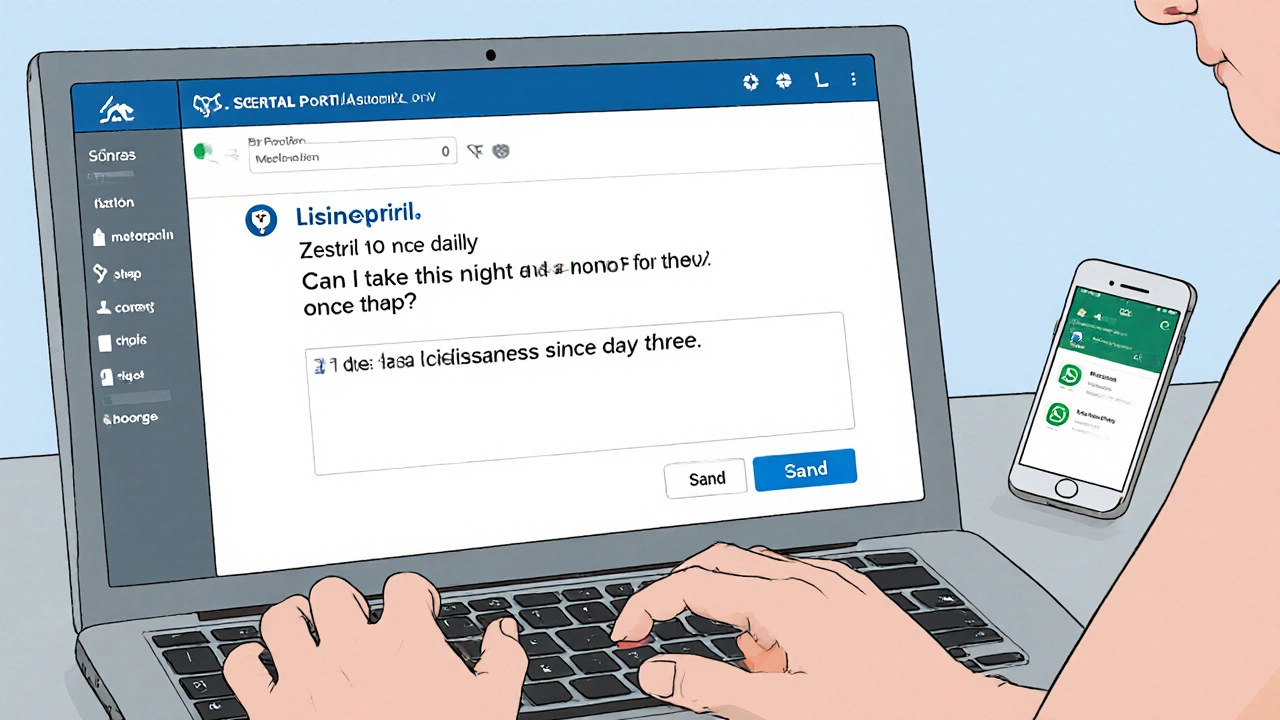HIPAA-Compliant Messaging: Secure Health Communication You Can Trust
When you send a message about your medication, symptoms, or test results to your doctor’s office, HIPAA-compliant messaging, a secure system designed to protect your health information under U.S. law. Also known as secure health messaging, it’s not just about encryption—it’s about legal accountability, access controls, and audit trails that keep your data from being seen by anyone who shouldn’t have it. If your provider uses regular text messages, email, or unsecured apps to talk to you, they’re breaking the law. HIPAA-compliant messaging ensures your personal health data stays locked down, whether you’re asking about side effects, scheduling a refill, or checking lab results.
This isn’t just for big hospitals. Small clinics, telehealth platforms, mental health counselors, and even pharmacies use HIPAA-compliant tools to talk to patients. Think of it like a digital lockbox: only you and your care team have the key. Systems like encrypted portals, secure texting apps certified for healthcare, and internal messaging platforms with audit logs are the standard. Regular consumer apps like WhatsApp, iMessage, or Gmail? They don’t count. Even if your doctor says it’s "fine," if it’s not built for HIPAA, it’s not safe—and you’re at risk.
Why does this matter? Because your health data is valuable. Hackers target medical records because they contain your name, Social Security number, insurance info, and diagnosis history—all in one place. A single unsecured message can lead to identity theft, insurance fraud, or even discrimination. HIPAA-compliant messaging isn’t optional for providers who handle protected health information. And if you’re using a patient portal or app from your doctor, you should be able to ask: "Is this HIPAA-compliant?" If they hesitate, that’s a red flag.
You’ll find real examples of this in action below. From how pharmacies handle refill requests securely, to how mental health apps protect therapy notes, to why some telehealth services fail—and what you can do about it. These aren’t theoretical rules. They’re daily practices that keep your privacy intact. Whether you’re managing a chronic condition, taking multiple medications, or just trying to get answers without handing over your data to every app on your phone, knowing what HIPAA-compliant messaging really means helps you demand better. Below, you’ll see exactly how this works in real healthcare scenarios—and what to look for when your care depends on it.

How to Use Secure Messaging to Ask Medication Questions
Learn how to use secure, HIPAA-compliant messaging to ask safe, clear questions about your medications - without risking privacy or waiting on hold. Get step-by-step tips for MyChart, Cerner, and other platforms.





